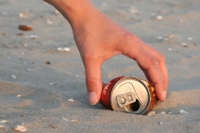 Today is towel day, but due to higher priorities I have to celebrate this important day all by myself. I can’t make it to Innsbruck this year, but I swear to you that I’m wearing my towel around my neck while I’m typing this blog entry, which I dedicate to Douglas Adams.
Today is towel day, but due to higher priorities I have to celebrate this important day all by myself. I can’t make it to Innsbruck this year, but I swear to you that I’m wearing my towel around my neck while I’m typing this blog entry, which I dedicate to Douglas Adams.
Few people know that his idea about “The great question of life, the universe, and everything” (to which the answer is, as everybody knows, “fourty-two”) was in fact a little bit inspired by Isaac Asimov’s great short story “The Last Question“, where generations after generations build more powerful computers to find out how to reverse entropy and thus prevent the universe from becoming an infinite starless nothingness. “The Last Question” is a great read with a surprising end. I won’t spoil it, don’t worry.
While it is impossible for humans to stop “real” entropy from increasing (let alone reversing it) it is certainly doable in the software world. But how?
It’s not by carrying out the big refactorings and redesigns that nobody wants to do and that no profit-oriented organization can afford: for months valuable resources are so busy cleaning up instead of implementing cool features customers are willing to pay for. It’s the small stuff that counts: the teeny-weeny improvements that you do on a regular basis. Like James O. Coplien said: “Quality is the result of a million selfless acts of care”
I very much like Uncle Bob’s boy scout rule analogy: “Always leave the campground cleaner than you found it”. This principle is helpful for life in general and software development in particular. If the system you are working on is a complete mess, don’t resign. Even if you just improve a comment or rename a badly named variable, you have made the system better. Then, if everybody acts like you, software entropy will be reversed.